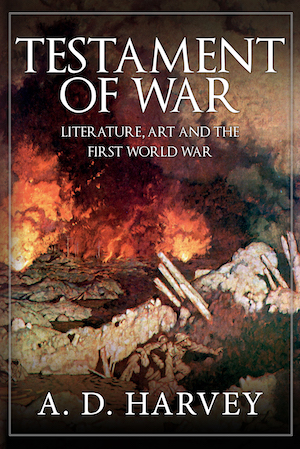Why I’ve Got the Reference Book Blues

Oxford University Press has never forgiven me for something I did as a second-year undergraduate at Oxford. May McIsack, in the fifth volume of the prestigious Oxford History of England series, stated that in the early Fourteenth Century the revenues of Gascony added up to more than the revenues of England. I explained to my tutor that the revenues of Gascony would only be £456 11shillings more than the revenues of England if the pound, or livre, of Gascony was worth the same as the English pound: actually it was worth about a quarter of the English pound. My tutor passed on this information and in due course received a knighthood, and Oxford University Press made the decision to replace fact-crammed – and in most cases reliable – volumes of their Oxford History of England series with an entirely new series giving students a broader picture of how things fitted together in the past, but without all those boring little bullet-points of information that Oxford dons occasionally get wrong. Facts have gone out of fashion in the era of Post-Modernism: much better to ask students to reflect on the question, “What is a fact?” and to point out that what really counts are not facts, but how you look at them.
All ostensibly factual accounts of the past consist of bits and pieces of data that have been selected by historians according to agendas which they refuse to avow, or which are no longer regarded as valid – perhaps it really is better to replace a biased selection of facts with no facts at all.
 On the other hand, one used to be able to rely on reference books like encyclopedias and dictionaries for at least some facts that hadn’t been selected in order to make a case. The Bill of Rights of 1689, which established the liberty of the subject and reaffirmed habeas corpus, was followed within a few years by a man called John Bernardi being locked up for forty years without trial. The premier fighting generals of the Second World War in both the British Army and the German Army, Bernard Freyberg V.C., D.S.O. and three Bars and Karl Mauss, Knights Cross with Oakleaves, Swords, and Diamonds, both had a specialist professional training rare amongst military commanders: they were both qualified dentists. Next year will see the two hundredth anniversary of the only battle in which a British army commanded by a Frenchman was defeated by a French army commanded by an Englishman. In a democracy, who actually decides when History ends and Trivial Pursuits begins? Who decides that the story of John Bernardi has nothing to do with what is happening today at Guantanamo Bay?
On the other hand, one used to be able to rely on reference books like encyclopedias and dictionaries for at least some facts that hadn’t been selected in order to make a case. The Bill of Rights of 1689, which established the liberty of the subject and reaffirmed habeas corpus, was followed within a few years by a man called John Bernardi being locked up for forty years without trial. The premier fighting generals of the Second World War in both the British Army and the German Army, Bernard Freyberg V.C., D.S.O. and three Bars and Karl Mauss, Knights Cross with Oakleaves, Swords, and Diamonds, both had a specialist professional training rare amongst military commanders: they were both qualified dentists. Next year will see the two hundredth anniversary of the only battle in which a British army commanded by a Frenchman was defeated by a French army commanded by an Englishman. In a democracy, who actually decides when History ends and Trivial Pursuits begins? Who decides that the story of John Bernardi has nothing to do with what is happening today at Guantanamo Bay?
In recent years two of the great nineteenth-century projects in the reference book line, the Oxford English Dictionary and the Dictionary of National Biography,have been overhauled by Oxford University Press and to a large extent rewritten to take account of the vast amounts of research that had been done since the 1890s and the resulting growth of our supposed understanding of the past. Both overhauls involved many more people, with much larger budgets, than the original writing. The first Dictionary of National Biography never employed more than five people full-time and had a total of 653 contributors. The new Oxford Dictionary of National Biography had a full time staff that included 30 researchers assisted by 412 associate and consultant editors, and had a total of 10,000 contributors. It was, in short, a corporate effort on a vastly larger scale. And like all corporate efforts it needed to be guided by some sort of professed principle, some sort of doctrine or acknowledged code of practice.
What these principles were may be judged by the results. About one in four of the people written up in the Oxford Dictionary of National Biography make significant appearances in unpublished government files in The National Archives at Kew, but only one biography in seventeen in the new Oxford Dictionary of National Biography refers in its bibliography to material in The National Archives. Archives, like facts, are no longer the fashion in acadame: in most of the instances where it has been pointed out in the press that material in The National Archives contradicts statements pulled from family reminiscences and publicity hand-outs, no correction has been made in the periodic up-dating of the on-line version of the Oxford Dictionary of National Biography. It’s not the facts but how you look at them.
Similarly both the old and the new Oxford English Dictionary use quotations to show the earliest recorded use of a word in its various senses. The new Oxford English Dictionary gives the first use of Churchillian as occurring in 1886, when it should be 1791, the first use of Ganga (what West Indians now call Ganja, wacky baccy) as 1800 when it should be 1699, of “baby-blue eyes” as 1949 when it should be 1863. In the case of both Ganga and baby-blue the texts quoted are less well-known than the earlier texts – by William Dampier and George Eliot – which have been overlooked.
The principle involved here was the principle of not checking whether the date given for the earliest recorded use was at all plausible. For example the term Jolly Roger for the pirate flag dates according to theOxford English Dictionary from 1784, about sixty years after the heyday of piracy. One might think that it would have been used when there actually were pirates around. In fact it was definitely in use in the 1720s. According to theOxford English Dictionary our intrepid aviators fought two World Wars without having a word to describe the concentric red-white-and-blue circles painted on their airplanes as national markings – the first recorded use of roundel, the standard Second World War term, is given as 1948, and cockade, the standard First World War term, does not appear in this sense at all. These and similar errors were pointed out in print more than fifteen years ago but they have not been corrected in any of the three supplements of the Oxford English Dictionarythat have been published since 1991.
Each generation not only rewrites history, it rewrites the professional principles of the historians it employs. Does it matter? That depends on what you think is relevant. Still, it would be nice, just supposing you ever wanted to know the answer to a question that wasn’t on a current college syllabus, to have a book you could look it up in and be surethat someone had actually made an effort to ensure that the book was as accurate as possible.